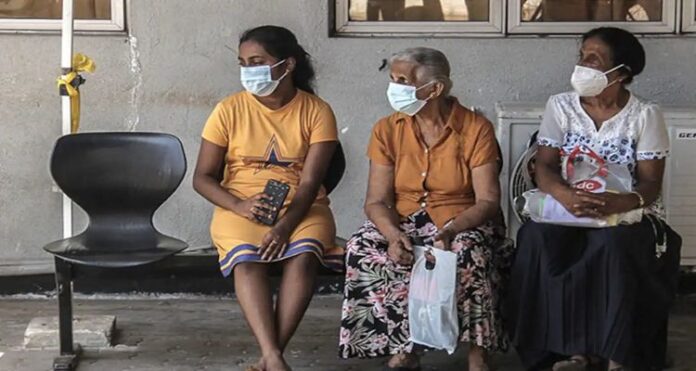| Translate This News In |
|---|
Entire wards in Sri Lanka’s largest hospital are dark and nearly empty, with the few patients usually leaving untreated and in pain, and doctors barred from even having arrived for their shifts.
An unprecedented economic crisis has dealt a fatal blow to a free and universal health service that had been the envy of the country’s South Asian neighbours just months before.
Theresa Mary, who had diabetes and high blood pressure that caused joint inflammation, travelled to Colombo for diagnosis at the National Hospital of Sri Lanka.
She had to walk the last five kilometres (three miles) of her journey because she couldn’t find a ride for last leg of her journey.
She was discharged four days later, still struggling to stand, because the pharmacy had run out of subsidised painkillers.
“My knees remain swollen. In Colombo, I don’t have a place to live. I’m not sure how far I have to walk.”
The National Hospital normally serves people from all over the island who require specialised care, but it is now understaffed and many of its 3,400 beds are empty.
Surgery equipment and life-saving drugs are nearly depleted, and chronic gasoline shortages have rendered both patients and physicians unable to travel for treatment.
Sri Lanka imports 85 percent of its doctors and health equipment, as well as raw materials for the remaining portion of its requirements.
However, the country is now bankrupt, and a lack of foreign currency has prevented it from obtaining enough petrol to keep the economy running – and enough pharmaceuticals to treat its sick.
“Normal analgesics, antibiotics, and paediatric medications are in short supply. Other medications have increased in price by up to fourfold in the last three months “K. Mathiyalagan, the pharmacy’s owner, told AFP.
Mathiyalagan stated that his colleagues had to dismiss three out of every ten prescriptions because they did not have the resources to fill them.


















